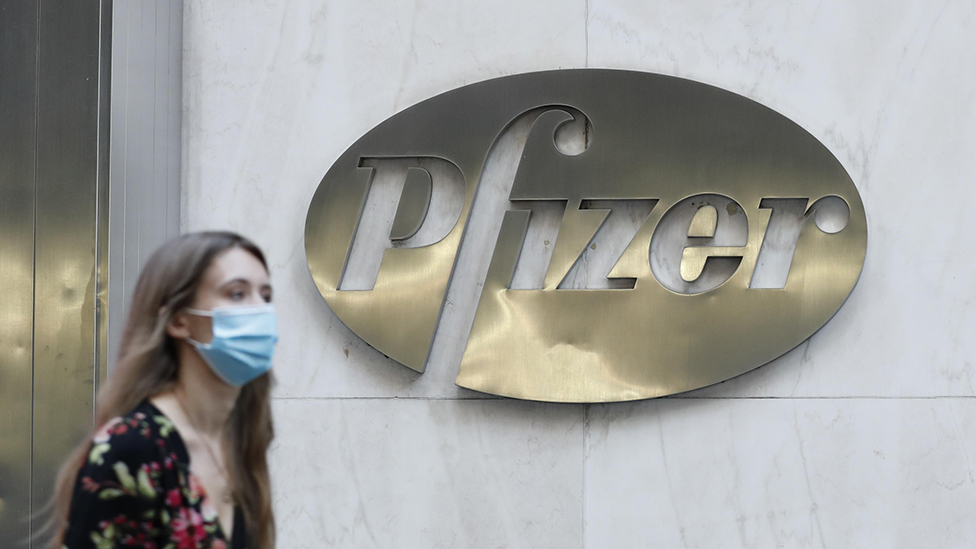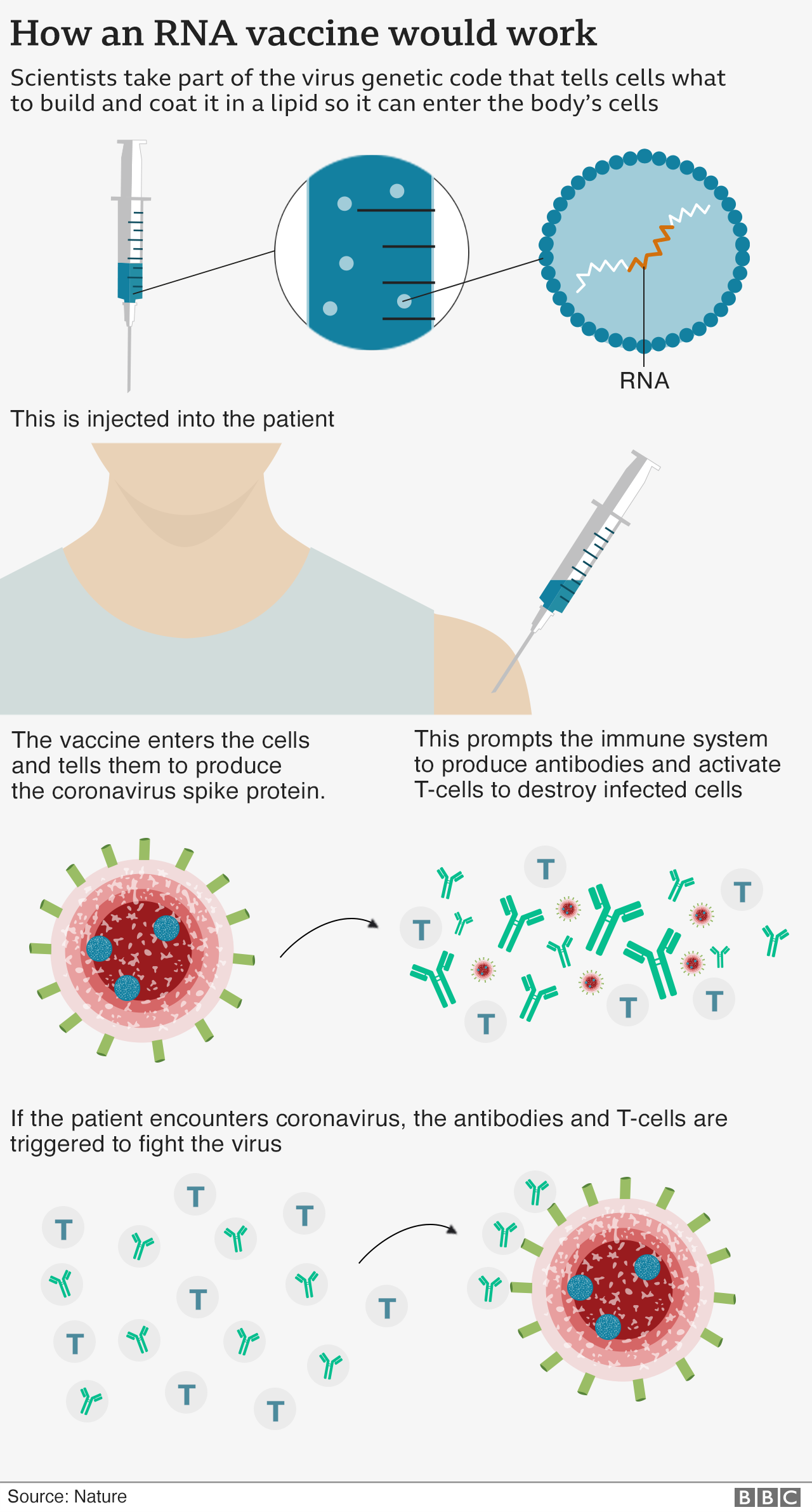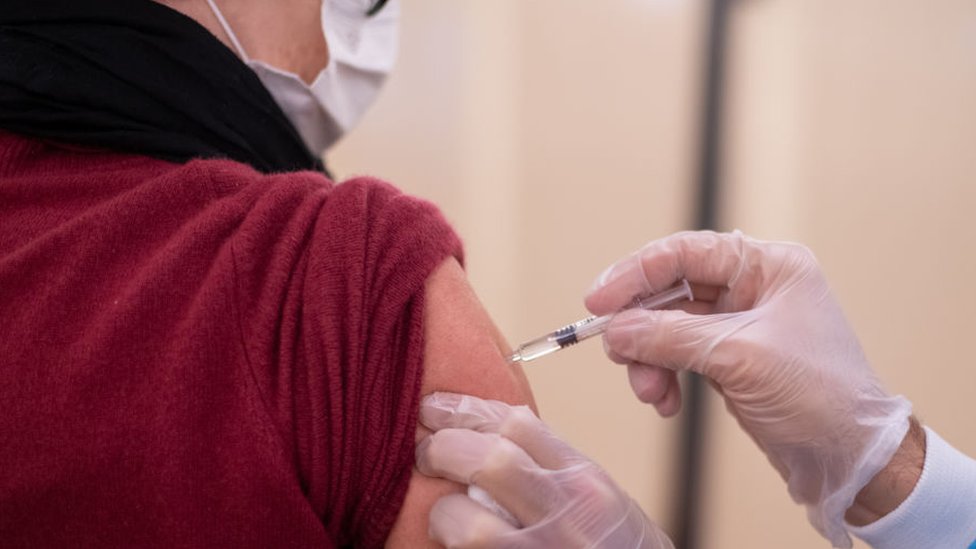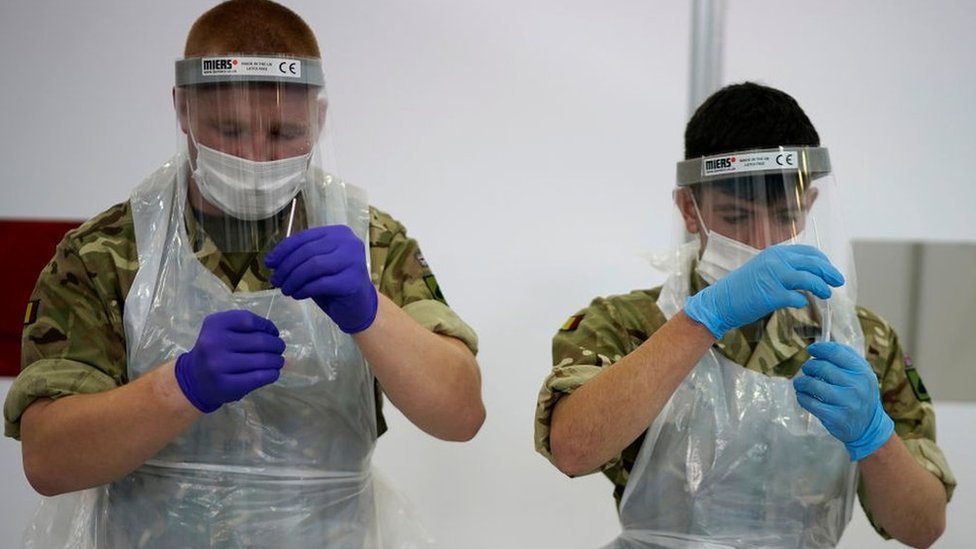
Its developers, Pfizer and BioNTech, said it had been tested on 43,500 people, with no safety concerns raised.
What is the new vaccine and how effective is it?
The vaccine trains the immune system to fight coronavirus.
It is a new type of vaccine called an RNA vaccine and uses a tiny fragment of the virus' genetic code. This starts making part of the virus inside the body, which the immune system recognises as foreign and starts to attack.
It is given in two doses - three weeks apart - and early data suggests it protects more than 90% of people from developing Covid symptoms.
Has this type of vaccine ever been used before?
There are no RNA vaccines that have been approved for use in humans.
The concept has been researched before and people have been given them in clinical trials for other diseases.
The vaccine will be considered by regulatory agencies around the world, and they will decide whether the jab can be approved for use.

Who will get it first and how soon can I have it?
It depends how old you are, as age is the biggest risk factor for severe Covid-19.
In the UK, older care home residents and care home staff are top of the preliminary priority list. They are
followed by health workers such as hospital staff. and the over 80s.People are then ranked by age, with people under 50 at the bottom of the list.
The first jabs may take place before Christmas if everything goes smoothly.
The vaccine will be delivered through care homes, GPs and pharmacists as well as "go-to" vaccination centres set up in venues such as sports halls.
However, there are logistical challenges to overcome - such as the need to keep the vaccine at minus 80C during transportation from the manufacturing lab to vaccination venues. The jab must be thawed before it is given to a patient and can be stored in a normal fridge for a few days before being administered.
Will it offer lasting protection?
It is impossible to know and we will find the answer only by waiting.
If immunity does not last then it may be necessary to have a vaccine every year, in the same way as for flu.
The data did not show whether protection from Covid-19 was the same in all age groups. However, earlier studies did suggest young and old people could produce an immune response.
There will also be some people - such as those with a weak immune system - who will not be able to have the vaccine.

Could the vaccine have long-term health effects?
Nothing in medicine is 100% safe - even something we take without thinking, like paracetamol, poses risks.
The data so far is reassuring - trials on 43,500 people discovered no safety concerns, although mild side effects have been reported.
If there were highly dangerous and common consequences of this vaccination, they should have become apparent.
However, rarer side effects may emerge as millions of people are immunised.
Will it mean we don't need lockdown?
Hopefully yes, but not for some time.
If enough people are immune then the virus would stop spreading and we would not need other measures for controlling the virus.
The challenge, however, is getting from now to that point.
There is still the monumental challenge of manufacturing enough vaccine and actually getting it into people. It is all going to take time and we need something to control the virus until then.
So, testing, lockdowns, social distancing, and mask wearing are going to be a feature of our lives for a while yet.
What if the virus mutates?
Viruses mutate all the time, it's what they do. The question is, will they mutate in a way that changes their behaviour?
So far there is no sign of that happening, but it is possible that in the future the virus may change so the vaccine becomes less effective.
If that happens, then a new coronavirus vaccine may need to be designed.
This is not unusual. A new flu vaccine is developed each year to try to match the strains of flu that are doing the rounds.
And the RNA vaccine technology is very easy to tweak so this should not be a major problem.

Why can it only be made by Pfizer?
The vaccine has been designed and developed by Pfizer and BioNtech, and they own the intellectual property.
They already have the manufacturing capacity to produce 1.3 billion doses by the end of next year, but could partner with others to increase capacity even further.
What do we still need to know about the vaccine?
The announcement gave us the headline, but there is a still lack of fine detail.
We do not know if the vaccine stops you catching and spreading the virus or just stops you from getting ill. We also don't know how protective the vaccine is in different age groups.
These will be crucial for understanding how it will be used.
What does this mean for other vaccines?
It is good news. It shows that a coronavirus vaccine is possible, which we didn't know a couple of days ago.
As many of the vaccines are targeting the same part of the virus - what's known as the spike protein - it raises hopes they will work too.
There are about a dozen vaccines in the final stages of clinical development.

No vaccine has gone from the drawing board to being proven highly effective in such a short period of time.
We are still waiting for the full data, but these results are even better than people were hoping for. A good flu vaccine protects around half of people, so 90% at the first attempt is a triumph.
"who" - Google News
November 10, 2020 at 01:53AM
https://ift.tt/3n5uory
Covid: Who will have the Pfizer vaccine first and when can I get it? - BBC News
"who" - Google News
https://ift.tt/36dvnyn
https://ift.tt/35spnC7
Bagikan Berita Ini














0 Response to "Covid: Who will have the Pfizer vaccine first and when can I get it? - BBC News"
Post a Comment